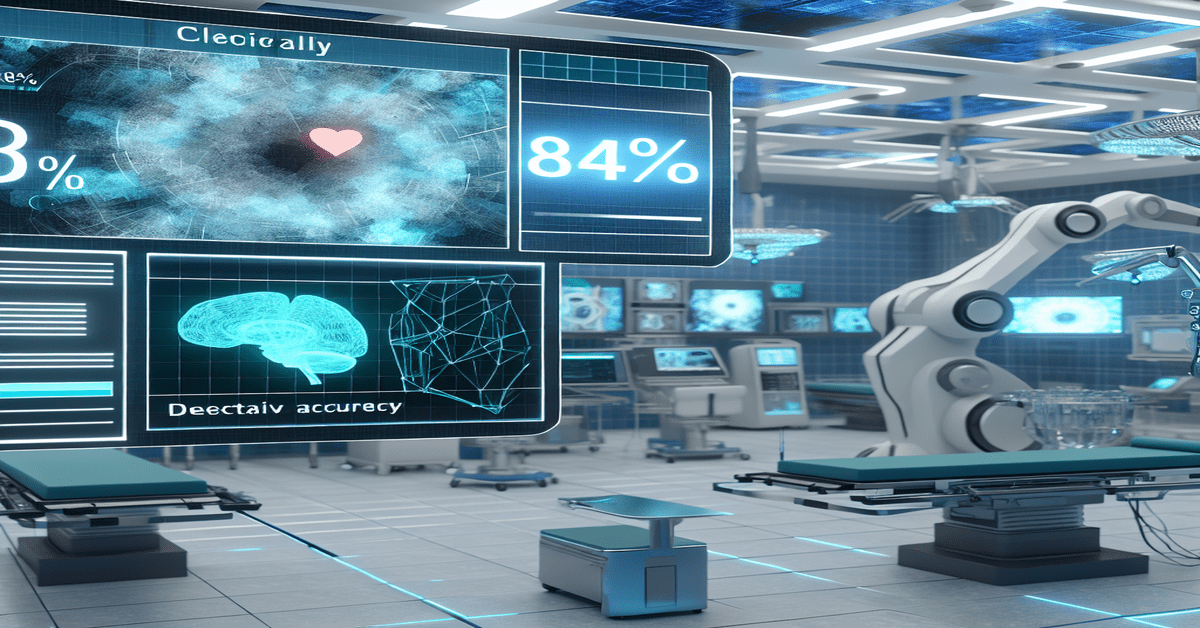AI Revolutionizes Prostate Cancer Detection: UCLA Study Reveals Groundbreaking Accuracy
In a groundbreaking development, researchers at the University of California, Los Angeles (UCLA) have discovered that artificial intelligence (AI) can detect AI Triumphs Over Doctors with a remarkable 17% greater accuracy compared to human doctors. This finding, recently published in a UCLA study, has the potential to revolutionize the way prostate cancer is diagnosed and treated, offering hope for millions of men worldwide.
The study, which analyzed 50 cases where prostate tumors had been surgically removed, pitted the AI tool against experienced physicians in detecting cancer. The results were astounding: while doctors achieved an accuracy rate of 67%, the AI software, developed by Avenda Health, correctly identified prostate cancer in a remarkable 84% of cases. This significant improvement in accuracy could lead to earlier detection, more targeted treatments, and ultimately, better outcomes for patients.
The Power of AI Triumphs Over Doctor Detection
The AI technology at the heart of this breakthrough utilizes a sophisticated algorithm that visualizes the likelihood of cancer based on various clinical data points. By analyzing a wide range of factors, including patient history, imaging scans, and biopsy results, the AI software can pinpoint the presence and location of cancerous cells with unprecedented precision.
One of the most promising aspects of this AI-driven approach is its ability to minimize the risk of leaving cancer cells behind during surgical procedures. With a much lower chance of residual cancer compared to traditional methods, patients can have greater confidence in their treatment and a reduced likelihood of recurrence.
Implications for the Healthcare Industry
The implications of this study extend far beyond the realm of prostate cancer. As AI continues to advance and demonstrate its capabilities in various medical fields, it has the potential to transform the entire healthcare industry. By augmenting the skills and knowledge of human doctors, AI can help streamline diagnostic processes, reduce errors, and ultimately improve patient outcomes.
However, it is important to note that AI is not intended to replace human expertise entirely. Instead, it should be viewed as a powerful tool that can work in tandem with medical professionals, enhancing their abilities and providing valuable insights. As Dr. Leonard Marks, the study’s lead author and a professor of urology at the David Geffen School of Medicine at UCLA, stated, “AI is not replacing doctors, but it is enhancing what they do.”
The Future of AI in Healthcare
As we look to the future, the integration of AI in healthcare holds immense promise. With its ability to process vast amounts of data, identify patterns, and make accurate predictions, AI has the potential to revolutionize not only cancer detection but also disease prevention, personalized medicine, and drug discovery.
However, to fully harness the power of AI in healthcare, there are several challenges that must be addressed. These include ensuring the security and privacy of patient data, developing robust regulatory frameworks, and fostering collaboration between AI experts and medical professionals.
A Call to Action
The UCLA study serves as a powerful reminder of the transformative potential of AI in the fight against cancer. As healthcare professionals, researchers, and technology experts, it is our collective responsibility to embrace this opportunity and work together to bring the benefits of AI to patients worldwide.
We must invest in further research and development, support the integration of AI into clinical practice, and educate both healthcare providers and the public about the value of this technology. By doing so, we can unlock the full potential of AI in cancer detection and treatment, ultimately saving countless lives and improving the quality of life for those affected by this devastating disease.
#ArtificialIntelligence #ProstateCancer #HealthcareInnovation #AI Triumphs Over Doctors
- Original article and inspiration provided by Melissa Rudy
- Connect with one of our AI Strategists today at Opahl Technologies


